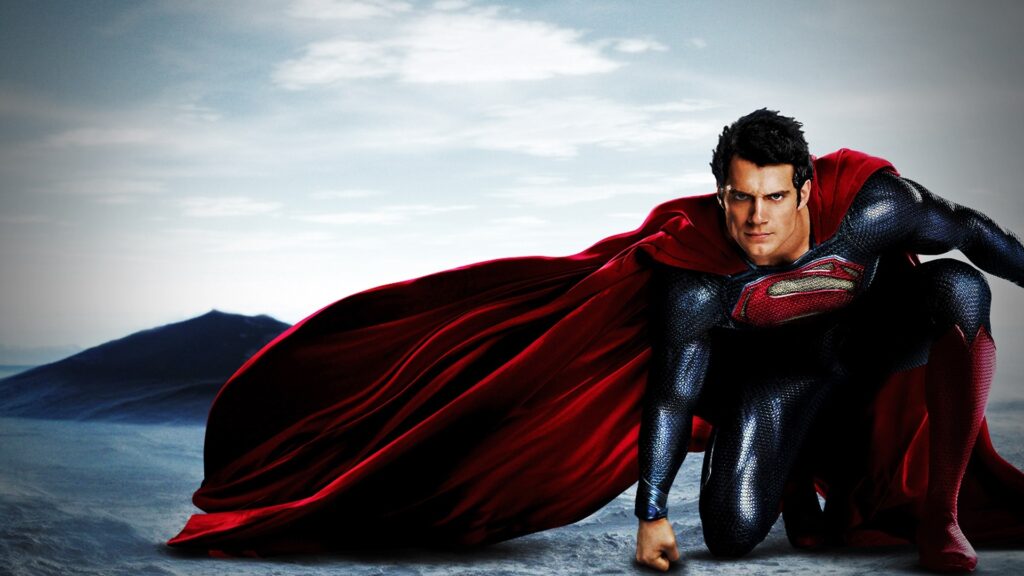If conservatives are hard to find these days in Hollywood, then it must be because they’ve been busy in Chicago, Toronto, and Plano, Illinois, these past few years working on the latest “Superman” movie reboot.
Written by David S. Goyer, directed by Zack Snyder, and starring Englishman Henry Cavill as the adult version of a brooding and introspective outsider seeking to find his identity here on earth, “The Man of Steel,” which officially opened in theaters on June 14, is politically conservative, overtly religious, and morally correct. Not only that, but it also portrays the United States military in a positive, caring light – not just as “heroes” but as human.
Eschewing the entertaining but cartoonish vision of the Christopher Reeve “Superman” movies of 1978, 1980, 1983, and 1987, and ignoring completely Bryan Singer’s 2006 “Superman Returns,” this 75-year anniversary incarnation of the Superman saga is the most thoughtful, serious, and philosophical yet. (Famously the product of Cleveland teenagers Jerry Siegel and Joe Shuster, who sought for years during the Great Depression to market their character as the subject of a newspaper comic strip, “Superman” debuted instead in Action Comics # 1, cover-dated June 1938.)
As “the sole surviving son of the planet Krypton,” the “Superman” character has always had religious and moral overtones reflecting both the Old and the New Testaments: In the former he is Moses, born to an Israelite mother living in Egypt who sets her son adrift in the Nile in a basket to avoid Pharaoh’s decree to execute first-born male Hebrews; in the latter he is an only son sent by his father to earth from beyond, is raised by simple folk, fights for truth and justice, inspires hope among his followers, and in the fullness of time becomes immortal and all-powerful. In “The Man of Steel,” however, the movie’s makers have elevated both religious and political allegory to a whole new level.
The movie’s version of Krypton is an Orwellian communal state run by an oligarchic elite. Babies are cloned from a common ancestor’s DNA and artificially bred according to pre-determined “expert” needs – some to be leaders, others warriors, still others menial laborers. Such a world, the movie teaches, cannot last, in this case literally exploding from the callous exploitation of its natural resources. (Okay, so the movie’s got an environmental angle too.)
In an inversion of the virgin birth, top scientist Jor-El and his wife, Lara, have had the temerity to conceive a son the “natural” way and, resonating Biblical tones, the couple place the baby in an earthbound rocket that Lara launches just before her world shatters completely and fire consumes her. Then the parallels to Moses begin to fade and the parallels to the Christ story begin in earnest. Raised on earth by foster parents, Kal-El (Hebrew for “Voice of God,” according to many translations) repeatedly turns the other cheek, both literally and figuratively, to those who persecute him in his youth and early adulthood before emerging as the world’s savior at the age of 33, the same age as Christ at his crucifixion and (for the faithful) resurrection.
Like Christ, Kal sacrifices himself in an effort to save humanity, but only after conferring with the higher authorities and here the symbolism isn’t even subtle: as Kal seeks guidance from a priest in the pews of a church the sun shines through a stained glass image of Christ on his knees in the Garden of Gethsemane and casts a halo of sorts over Kal’s head. Crucifixion poses and crosses abound throughout the movie, in fact, including in the skeletal steel remains of a battle-damaged “Metropolis” reminiscent of the 9/11 World Trade Center wreckage.
The political message is slightly more subtle but equally clear: that individual liberty and free will (both Jor-El’s and Kal-El’s) can triumph over the power and collective “wisdom” of the state if good people will only do what they know is right, even at personal expense. (Jor-El sacrifices his life; Kal-El sacrifices his anonymity and his Kryptonian heritage.) And in a message meant for lefties and righties alike, in a penultimate scene the newly-christened “Superman” knocks down a surveillance drone that is tracking him, then tells government representatives that they will just have to learn to trust him – after all, he did grow up in Kansas.
Liberals have largely won the culture wars of the last half-century not through the power of ideas but through the power of control over entertainment and education. It will be a long time before conservatives recapture the academy or even secure a decent foothold, but with a few more movies like “The Man of Steel” conservative values may have a shot at recapturing the culture.
Superman, after all, fights not only for truth and justice but for the American way. Even when he is played by an English actor.





